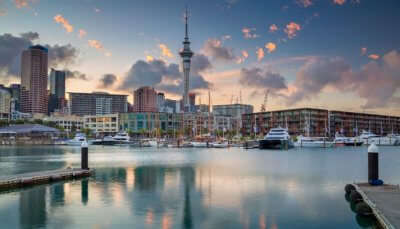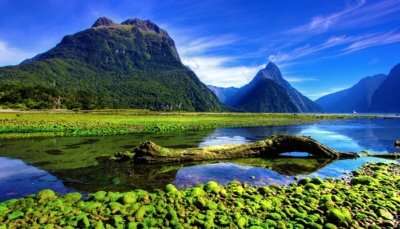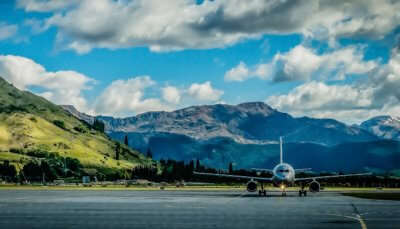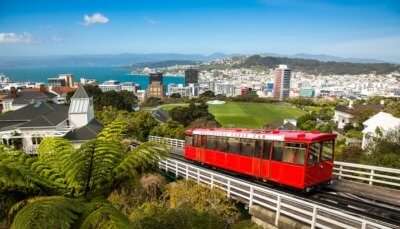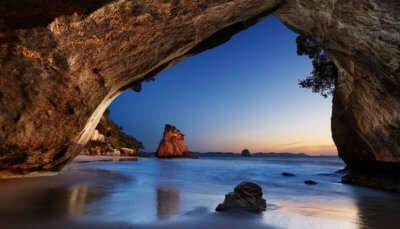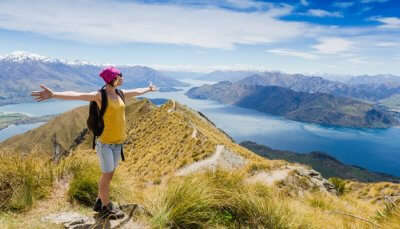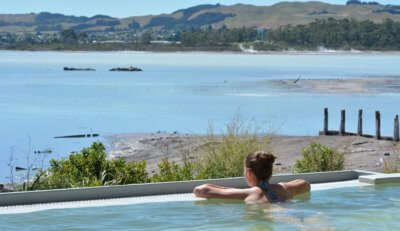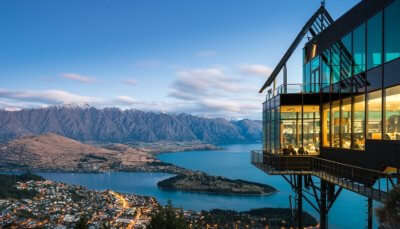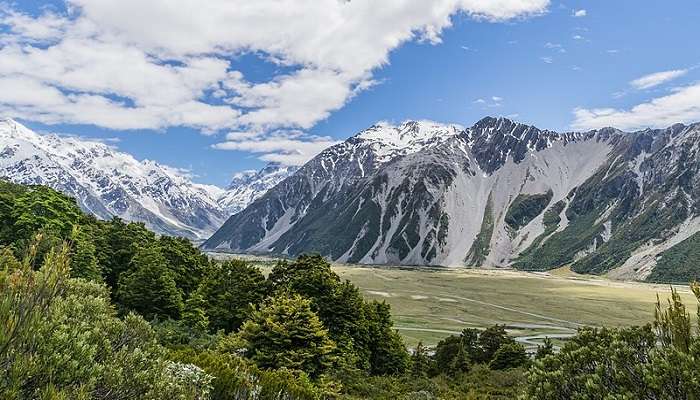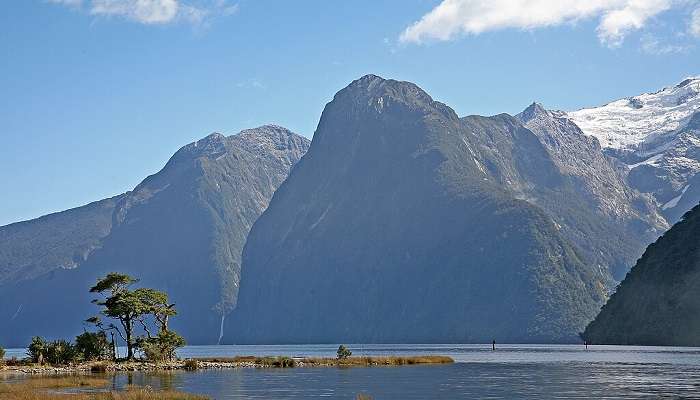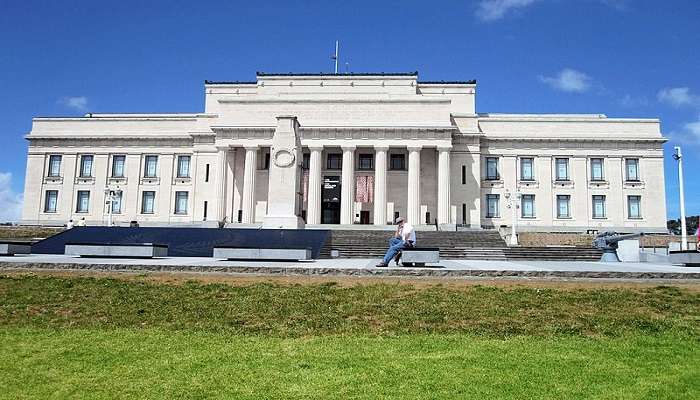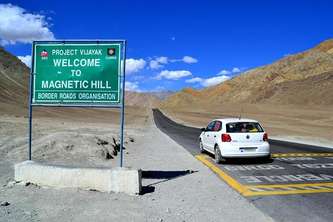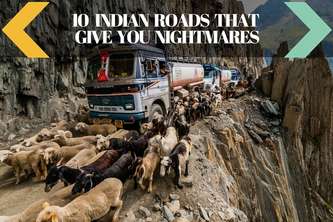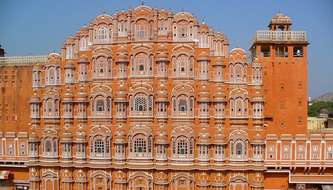New Zealand is all set to fully open its borders to international tourists from July onwards. This post-Covid travel guide to New Zealand details all the aspects that you must know before planning your journey in the upcoming days.
New Zealand is a serene country in the southwestern Pacific Ocean that has a history of Māori, European, Pacific Island, and Asian immigration. The country features an amalgamation of cultures, merged with geologically captivating terrains and exceptional flora and fauna. Earlier, before the 19th century, it was counted as a part of the United Kingdom. The country comprises numerous small islands, with two prime isles, that are the North Island, known as Te Ika-a-Māui and the South Island, which is Te Waipounamu. These two islands constitute the major land area of the country.
The country is known for its mixed topography and from high mountains & volcanoes to refreshing beaches and forests, the islands of New Zealand are surprising for visitors from across the world. With the abundance of farmland in the northern areas and impeccable glaciers in the southern regions, there are multiple biospheres that have kept visitors waiting during the Covid period. Now, as the country has opened its windows for visa submissions and is expected to open from the last week of July 2022, here are details on the advisories, activities permitted, etc.
New Zealand Travel Advisory During Covid
Travellers from across the world had been waiting for a long to wander amid mystic escapes of New Zealand, and with news of the reopening of the country, there is a spree of excitement among those who wish to plan holidays here. However, the country has ensured strict rules to guarantee a safe travel experience for all visitors.
New Zealand International Airport will be opened for commercial flights from the permitted countries. However, the authorities have released a list of travellers who need to deposit vaccination certification:
- A traveller who is not a citizen or resident of New Zealand.
- A traveller who is an Australian citizen living in New Zealand.
The following travellers will be exempted from submitting the vaccination proof:
- A visitor who possesses a New Zealand residence class visa.
- A visitor is an Australian citizen living in New Zealand.
- Any child aged below 16 years.
- A visitor who cannot be vaccinated due to medical reasons. In such a case, you need to produce electronic or paper evidence from a certified health practitioner.
Tourists are expected to remain conscious of the measures and follow them to ensure a safer environment. The following are guidelines by the health department of New Zealand:
- Wear face masks to protect yourself and others from COVID-19, especially in poorly ventilated spaces and wherever it is hard to maintain physical distance.
- In case a traveller develops COVID-19 symptoms, get tested and follow mandatory quarantine until the test results are negative.
- Visitors must upload all the necessary documents on the online portal and complete the procedures.
- Most travellers need to be vaccinated and take 2 rapid antigen tests (RATs) after arriving in New Zealand.
New Zealand In Winter: Know How To End 2022 On A Perfect Note With This Guide!
Best Time To Visit
New Zealand is among those enchanting places in the world that surprise visitors with its awe-inspiring beauty throughout the year. You can enjoy diving all year round, however, if you wish to witness crystal clear weather conditions and visibility then you can plan a visit between December to March.
How To Reach
The quickest and most convenient way to reach New Zealand is by air. The New Zealand International Airport is located on the outskirts of the capital city and has connectivity all over the world. If you are travelling from India then you can take a direct or indirect flight from Delhi or Mumbai to Auckland which takes nearly 16 to 38 hours. Travellers from India do not require a visa to enter New Zealand, however, a valid passport will be required.
Exploring Best Of New Zealand On A Friends And Family Trip
Getting Around
Regarding the transfers within the country, as per the latest updates, public transports are available and working regularly. The best way to transfer within the country can be done through public transport. Buses are the prime form of public transport, you can also trains and ferries.
If you wish to travel between the islands then you can prefer to take a ferry. Numerous passenger and private ferries serve connectivities between the North, South and other islands. A rail journey in New Zealand makes you capture spectacular vistas and is counted as a great way to explore the country.
The following are the important points to be kept in mind while getting around in New Zealand during Covid:
- Tourists must carefully follow the instructions provided by the operator during transportation.
- It is mandatory to maintain physical distance.
- Travellers who are taking domestic flights to other islands must follow the health protocols provided by the authorities.
Places To Visit In New Zealand During Covid
You can visit the major tourist destinations including the Bay of Islands, Tongariro National Park, Rotorua, Auckland, Coromandel Peninsula, Queenstown, etc. while holidaying in New Zealand. Arthur’s Pass National Park is known for being home to enormous peaks and deep valleys. You can add it to your itinerary and indulge in explorations. Cape Reinga and Ninety Mile Beach of the North Island feature panoramic sea views and are ideal to plan beachy getaways. Whereas, the native Maori culture pervades all the parts of the country.
Things To Do In New Zealand During Covid
Currently, bodyboarding down the giant sand dunes, sailing in the Bay of Islands, climbing the volcanic island, tasting some of the finest wines, hiking to the highest volcanic cone, kayaking around Cathedral Cove, etc. are some of the best activities to indulge in. You can easily maintain social distancing while undertaking these activities and apart from these you can also explore hot water beaches, explore Hamilton Gardens, stay at Hobbiton, or visit the Glowworm caves.
Accommodation
There are no specifications released as per the accommodation and staying alternatives. However, travellers can stay at the properties certified by the Public Health Authority. Make sure that you have the required documents to ensure that you are safe and there are no chances of transmission of any kind of virus. Be cautious towards maintaining hygiene, social, and physical distance.
20 Best Beaches In New Zealand For A Lazy Romantic Holiday
Restaurants
The restaurants, cafes, clubs, pubs, etc. are open as usual. Safety guidelines are followed to ensure a safe ambience. If you are planning for a meal outside then make sure that you book a table in advance.
What To Pack
This post covid travel guide to New Zealand travel is incomplete without detailing the list of things that you might need on your upcoming holiday:
- Pack your usual medicines in case you are undergoing any medical treatment and do carry your prescription.
- Do carry a first-aid kit.
- Don’t forget to carry extra masks, disposable gloves, and sanitisers.
- Check the weather forecast to pack accordingly.
- Do carry your slippers, sunscreen, swimwear, and sunglasses.
Auckland Nightlife: Top Party Places In The City To Dance The Night Out
Travel Checklist
- Book your flights and hotel in advance.
- Make sure that you meet the necessary requirements by the authorities and fill online health declaration along with the necessary documents on the official website of New Zealand tourism.
- Keep your vaccination certificate handy as proof to submit on arrival in New Zealand.
Covid-19 Prerequisites And Consequences In New Zealand
- Apply for a visa in advance with all the required documents.
- Upload the required documents and carry the necessary copies along with you.
- The thermal screening will be done at the entry points.
- On showing any positive symptoms of Covid, the traveller will have to undergo testing.
- In case of testing positive, the travel will have to undergo 7-day of mandatory isolation and will be tested accordingly.
Ski In New Zealand: 10 Places Every Adrenaline Junkie Must Visit At Least Once!
Further Travel Tips
Here are a few important travel tips before concluding this post-covid travel guide to New Zealand that might help you in having a safer experience:
- Wear your mask in public places.
- Carry extra sanitisers, disinfectants, masks, and gloves.
- Follow social distancing.
- Try avoiding crowded areas.
- Get yourself tested once you return back.
Plan your holiday to New Zealand with TravelTriangle and have a memorable experience with your loved ones! Don’t forget to keep this post-Covid travel guide to New Zealand handy for a comfortable and stress-free experience.
For our editorial codes of conduct and copyright disclaimer, please click here.
Frequently Asked Questions about Post-covid Travel Guide to New Zealand
Is self-isolation required upon arrival in New Zealand?
No, self-isolation is not required, however, you need to present your vaccination certificates and rapid tests would be conducted upon arrival. In case of positive results, you need to quarantine for 7 days.
Can I get a visa on arrival in New Zealand?
No, if you are travelling to New Zealand from India then you need to apply for the visa in advance.
Is it safe to visit New Zealand in the upcoming months?
Yes, New Zealand is expected to open for visitors from the last week of July. Make sure that you follow all the safety travel guidelines by the authorities to ensure a safe experience.
People Also Read:
Post-Covid Travel Guide To Seychelles Post-Covid Travel Guide To Thailand Post-Covid Travel Guide To Germany
